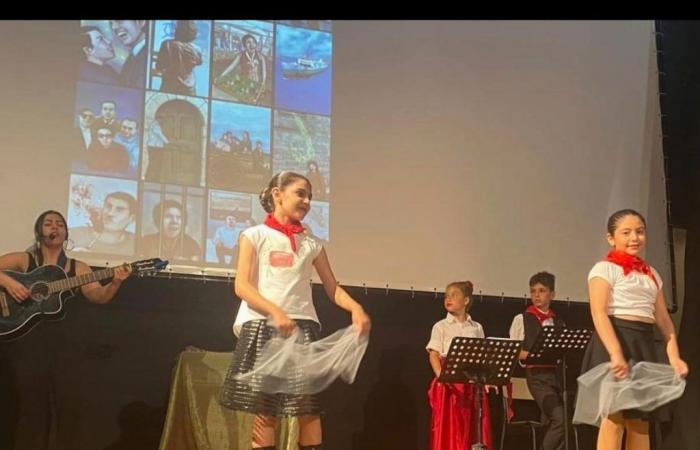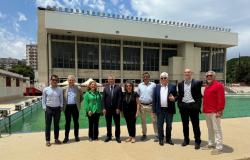
Activate notifications for School Technique news
Turn off notifications
“Rosa Balistreri: in memory of a Voice”, written and directed by prof. Pino Pesce, was the play that the third San Nicolò Politi didactic circle of Adrano performed at the “Scuola Santa Lucia” theater at the end of the school year.
This is a project created thanks to funding from the Sicilian Region entitled: “Not just funny. Sicilian is the language of a people”through which we want to bring the Sicilian dialect back to the attention of schools so that its great cultural and expressive tradition, which has been seen, for example, in Giovanni Meli or Domenico Tempio, but also in Nino Martoglio and even in Pirandello, who wrote dialect comedies especially for Angelo Musco, let him not fade into abandonment and oblivion.
A tradition which among other things is also linked to the “Sicilian poetic school” of Cielo d’Alcamo or Jacopo da Lentini or Odo delle Colonne, the one encouraged by Frederick II.
Therefore, as the principal, Francesca Liotta, says, a project to promote the conservation and rediscovery of the Sicilian language, culture and traditions. Even if “the work staged in the school goes far beyond the mere promotion of Sicilian culture”, because we tried to bring to the attention, and not only of the children, a singular character such as the artist Rosa Balistreri, a folk singer from Palermo who passed away in 1990, and therefore also, in her name and according to her personal history, “the theme of violence against women – too often, especially in the past and in certain environments – justified and almost accepted by the women themselves. In addition to the content, the language is valuable with the rediscovery of words that young people don’t know and that older people haven’t heard for a long time.”
A multimedia show that brought together singing, acting, dance, video projection and Sicilian culture, also the bearer of modern and atavistic traditions.
The protagonists were the children of the Adranita school: the pupils of the fifth classes of the same primary school who acted, sang and danced and then Gloria Santangelo, singer, actress and storyteller, who brilliantly embodied the character of Rosa Balistreri.
Also worth highlighting is the serious and committed work of the teachers-coordinators of the show: Imma Trovato, choreographer, and Concetta Cusimano, expert in Sicilian language and culture. The public’s welcome was great and warm.
On his behalf, the director Pino Pesce, in addition to recalling the figure and work of the poet Ignazio Buttitta, specified that “the story of Balistreri is imbued with a lot of Sicilian character and which is told, sung, story-teller and set to music by the excellent Gloria Santangelo, while it is dotted with suspense and interspersed with flash backs on Rosa’s experience, such as the landing of the allies in July 1943 and the moment of an evocative choral prayer during an evening of lightning and thunder”.
Pesce adds further: “The musicalstory it is a revolutionary multimedia work that aims to be the strong and heartfelt voice of Sicily, the angry song of protest that the Singer of the South experienced between violence and degradation, between betrayals and oppression; a dough that Balistreri from Licate, with poignant and angry passion, cuntava and sang, always adding a little lightness and irony to survive adversity.”
Activate notifications for School Technique news
Turn off notifications





